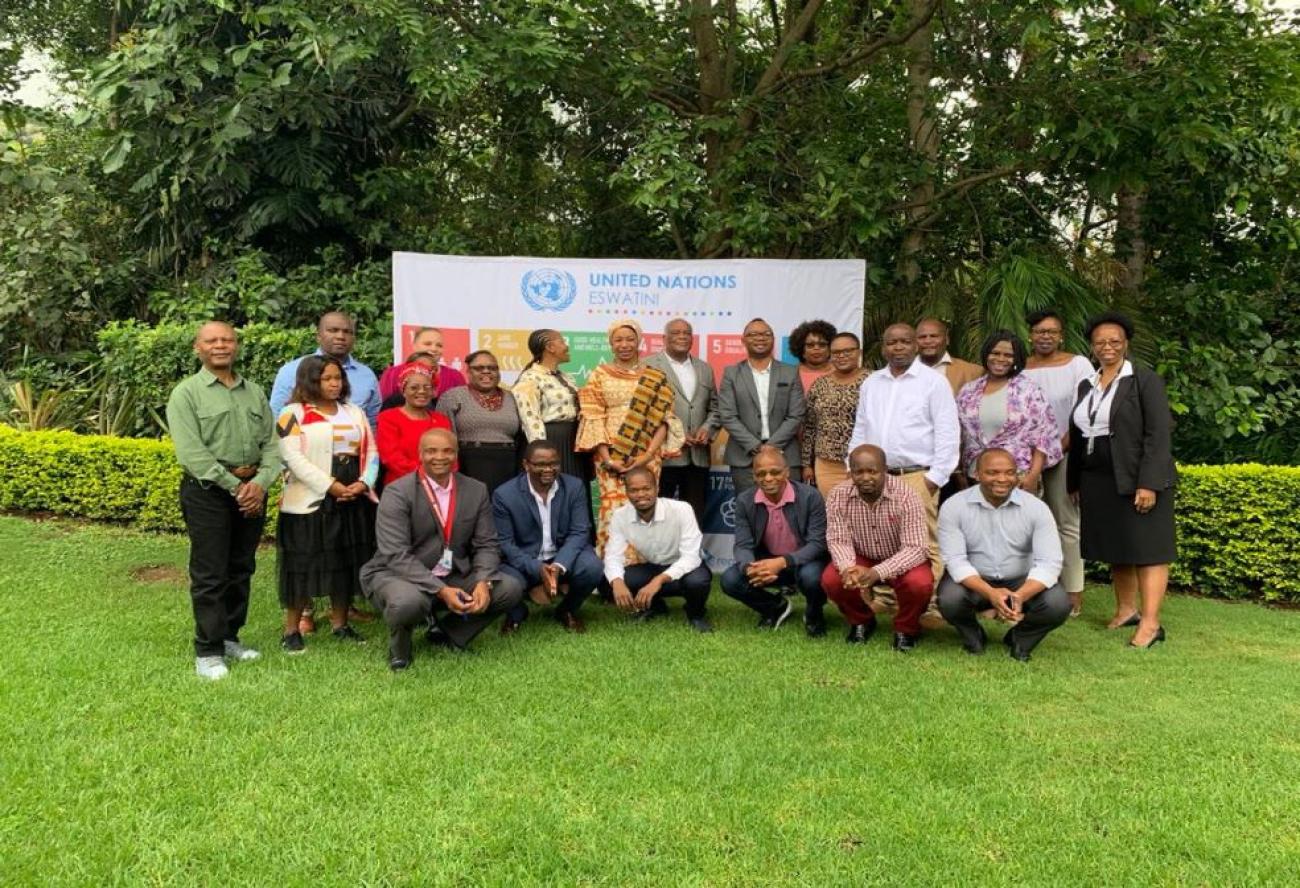Media Management in the Digital Age Training

The is part of a series of training's meant to improve the coverage and reporting of national development priorities and build strong relations with the media.
The United Nations in Eswatini, in collaboration with the Ministry of Information and Communications Technology, as well as the Sol Plaatje Institute for media leadership at Rhodes University, organized a training workshop for media practitioners (editors and chief executives of media houses) in Eswatini, on media management in the digital age. The aim of the workshop was to equip the media with strategies to harness opportunities and effectively manage threats in the digital age specifically in the advent of the 4th industrial revolution and to improve the coverage and reporting of national development issues.
The training is part of a series of training workshops that the UN Development System in Eswatini is willing to organise in order to improve the coverage and reporting of national development priorities and strengthen its partnership with the media. It is expected that the training will result in an increased coverage of development issues by the media and will enhance a better understanding of the UN work in Eswatini, the 2030 Agenda and components/pillars of the UN Cooperation Framework, thereby ensuring that the country adheres to the “Leave No One Behind” principle.
The training workshop was opened by Ntombifuthi Khumalo, the acting director for information and media development at the Ministry of Information Communication and Technology (ICT) on behalf of the Principal Secretary in the Ministry of ICT Maxwell Masuku, in which she spoke of the importance of adapting to the changes that digitization brings to both reporting on the ground and media management in practice.
UN Eswatini Resident Coordinator, Ms. Nathalie Ndongo-Seh made a welcoming address where she highlighted how “the purpose of this training is to explore the opportunities, challenges and risks for media in the digital age.” The UNRC acknowledged how the digital revolution has come with both opportunities and threats. The UNRC also used this opportunity of meeting with senior media managers and editors to encourage dialogue on the achievements and challenges of the UN in the past 75 years as well as recommend priorities for the UN and government.
The workshop began with a panel discussion titled “Media Perspectives on the Future we want and the UN we need.” The discussion led by RCO Program Communications and Advocacy Officer Sibusiso Mngadi looked at the achievements of the UN both in Eswatini and across the globe and the missed opportunities.
Francis Mdlongwa, Associate Professor of the Sol Plaatje Institute for media leadership was the facilitator of the training and started off by looking at the changes taking place in the media industry due its digitization and how these changes have resulted in a substantial drop in revenue for traditional media outlets. He opened the discussion by asking all present to list the most pressing financial needs that are faced by the media houses which they manage.
Day 2 of the workshop began with a focus on how to attract revenue in a world where news is now largely available for free. Issues changing the face of traditional media such as citizen journalists, blogger content and social media were looked at, and what followed was a discussion on how to harness these threats to traditional media while also generating revenue. The issues of social media policy were also covered at length with participants being split into different discussion groups (i.e. management, trade unions and reporters). Each group drafted a social media policy and provided feedback from a different perspective. All media houses were encouraged to have a social media policy.
The training ended with an open discussion on ways to tackle the digital age as media practitioners with the main take away point being that media houses need to provide content on multiple platforms to ensure they reach a wide audience.






